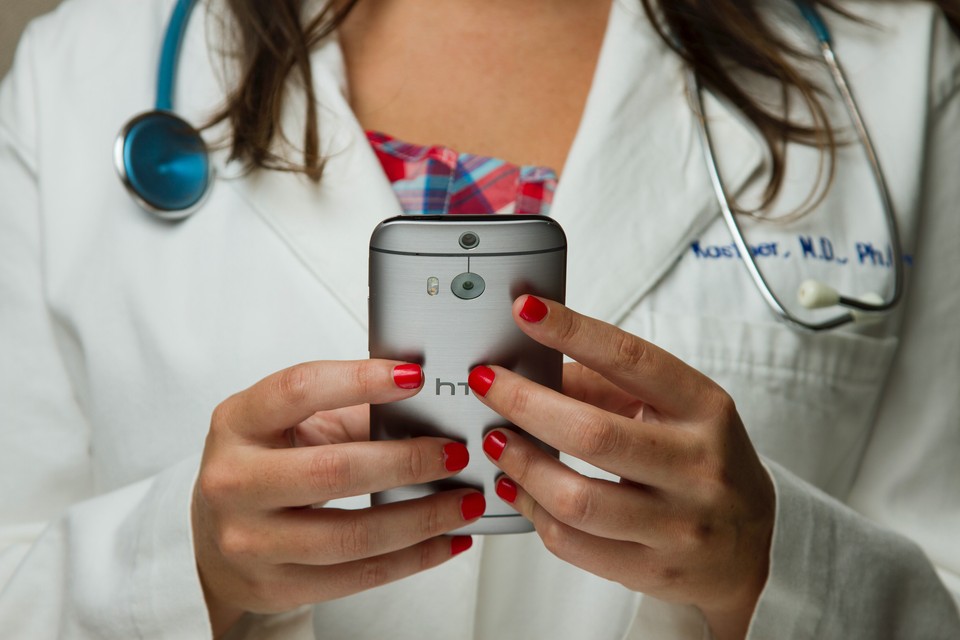
By Sunny Um Wired Korea
The outbreak of novel coronavirus has forced substantial change in the Korean health care industry. Instead of making trips to local clinics where they wait in a room full of ill patients, an increasing number of people consult with doctors over the phone and check their health with smart devices.
Telemedicine over Phone
As the COVID-19 spreads at an unprecedented speed, the Korean government temporarily allowed doctors to provide medical consulting services over the phone for the first time in its history to forestall any possible infection at clinics. From February 21 to April 12, over 103,000 telemedicine diagnoses were made nationwide, according to the Central Disaster and Safety Countermeasures Headquarters.
Obtaining a prescription drug is also not difficult with this telemedicine service. Patients could either ask their doctors to send a prescription to a pharmacy of their choice or receive it on their smart devices.
If the prescribed drugs have any addictive materials, pharmacists are recommended to call the doctors to check if such a material was necessary before offering the prescription drug to patients.
Telemedicine via Smart Devices
Regular health checks could be done with smart devices, instead of clinic visits. Several apps on smart devices offer users to track their menstrual cycle, daily workout routine, and food diet on their system.
A smartwatch could take a step further in the health check. "Users always have their watches wrapped around their wrists,” says Cho Seo-hee from the public relations department at Samsung Electronics. “It’s easier to monitor indicators on them to check the heartbeat, pulse, and the like.”
Some smartwatches can measure the heart rate, give advice on running or swimming, analyze sleeping patterns, estimate stress, check the decibel level of noise, and give notice regarding when and how much to take water.
Smartwatches can even check the blood pressure. Today, Apple Watch Series 5 offers users to measure their blood pressure levels with a smart blood pressure cuff. What’s more, a newer Galaxy Watch model is able to measure the blood pressure “cuff-less” later this year.
Denoted as the Samsung Health Monitor, the cuff-less app analyzes the blood pressure using a pulse wave analysis with the same sensors for measuring the heart rate.
The principle behind the monitor app is simple. Users first input their blood pressure measurements on the app. The input value works as a calibration value, the standard of estimates. Then the app analyzes how the blood pressure changes from the calibration value and calculates the blood pressure estimate.
With obtaining regulatory approval from the Ministry of Food and Drug Safety in Korea, the first government agency to do so in the world, the app is scheduled to be released in the third quarter of this year in the Korean market.
The Samsung Health Monitor app will not be able to replace blood pressure cuffs, yet, because users are required to manually input the readings from a blood pressure cuff at first. Also, users are asked to recalibrate their watches once every four weeks to make the blood pressure estimates more correct.
Blocked by the Law
However, doctors are temporarily allowed to give a prescription over the phone and take the smart watch’s measurements as references in giving a diagnosis. This kind of telemedicine is prohibited by law when the pandemic is over.
A revision bill for the medical service act has been on the table since 2010 but never managed to pass due to opposition from medical doctors.
An official of the Korean Medical Association, an organization in strong opposition to this idea, says that telemedicine and some smart devices are “not yet found to be objectively trustworthy.”
The association also cited the possibility of health data being leaked for another reason to oppose telemedicine. It also said some treatments are so professional that they cannot provided none other than medical staff.
The revision bill has a chance of passing the National Assembly as it has the backing of President Moon Jae-in and the ruling Democratic Party of Korea, which had a landslide victory in the April 15 general elections.
At a Cabinet meeting, Moon included “non-contact medical service,” or telemedicine, among the projects he is planning to launch for recovery from the coronavirus-caused economic crisis.
His idea of telemedicine is shared by ruling party lawmakers, including Rep. Oh Jae-see, who said: “Telemedicine should be made available in Korea now that the medical industry has been undergoing change since the outbreak of COVID-19.”
와이어드 코리아=Sunny Um Staff Reporter
sunny@wired.kr
저작권자 © WIRED Korea 무단전재 및 재배포 금지
와이어드 코리아=Sunny Um Staff Reporter
sunny@wired.kr
저작권자 © WIRED Korea 무단전재 및 재배포 금지
이 기사를 공유합니다


 뉴스레터 신청
뉴스레터 신청